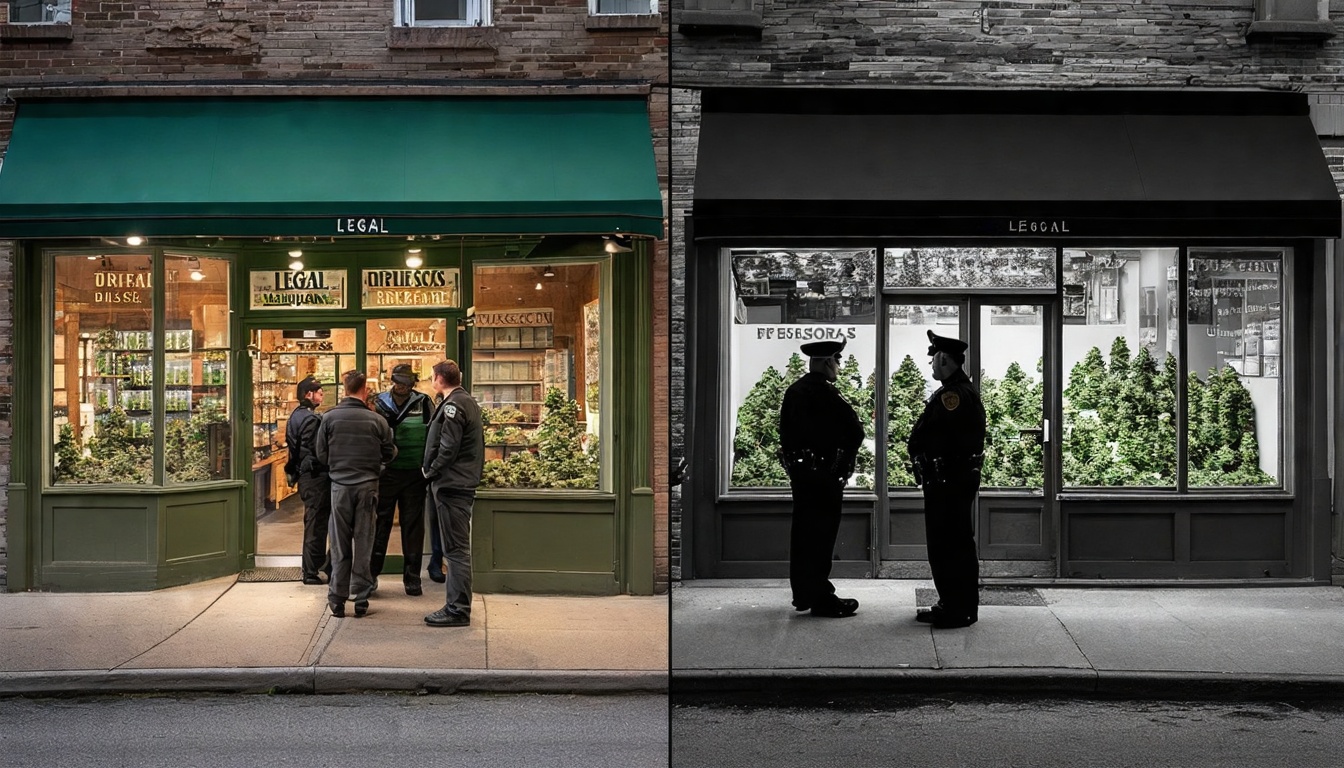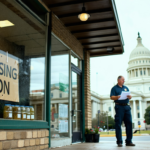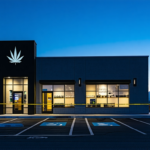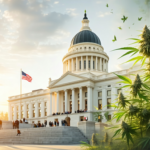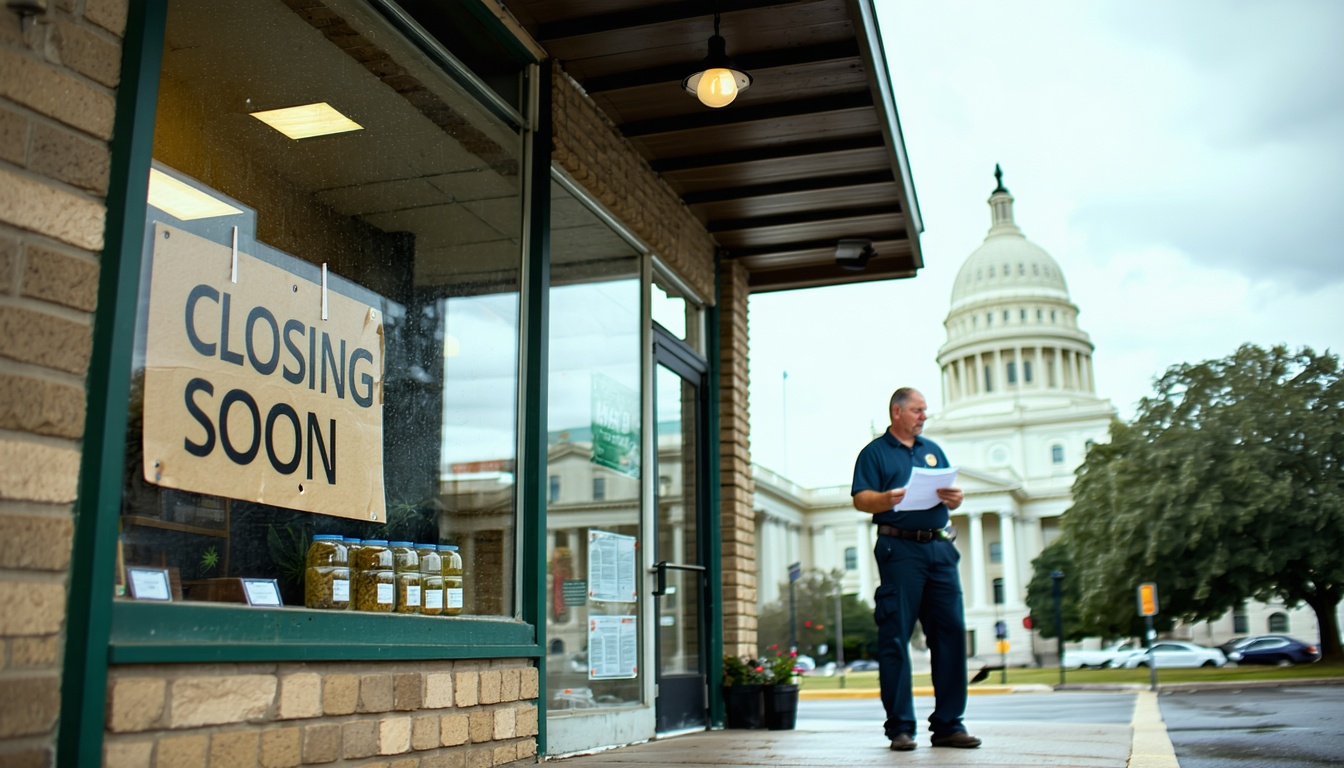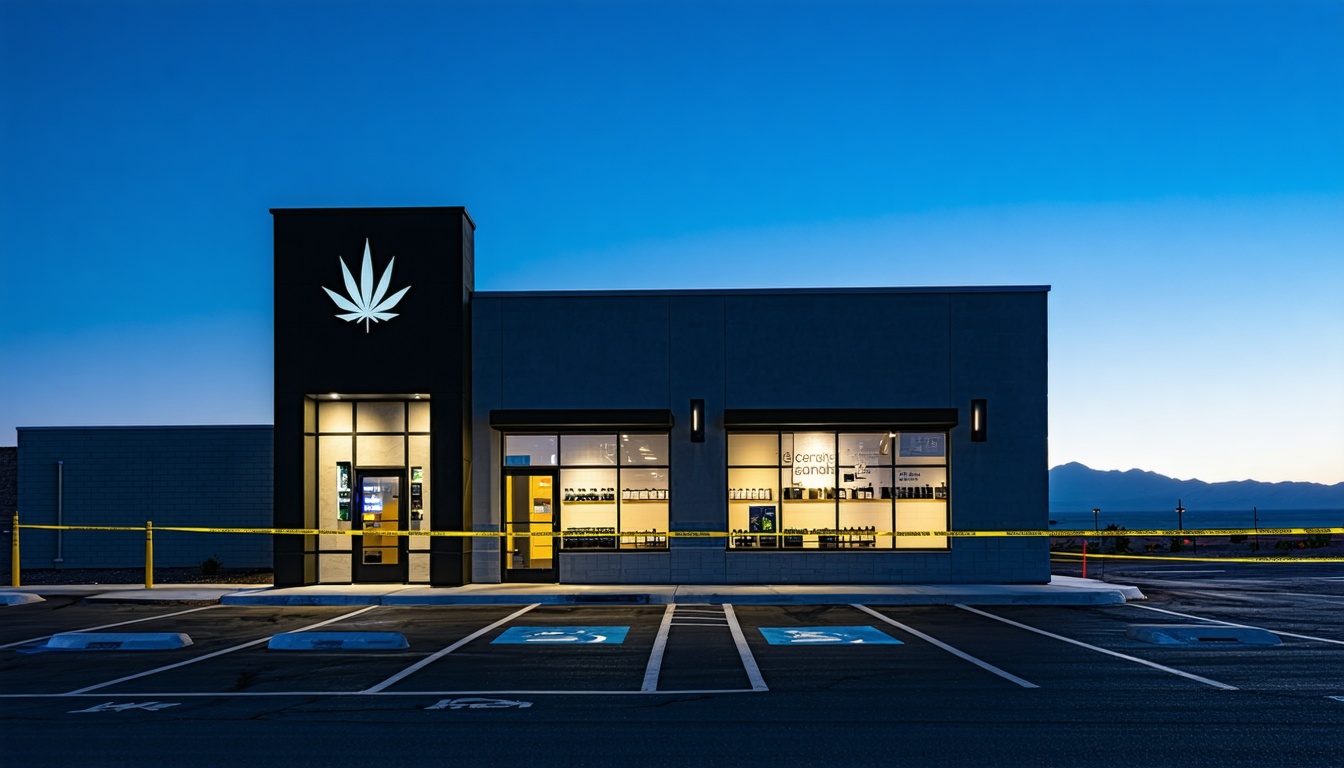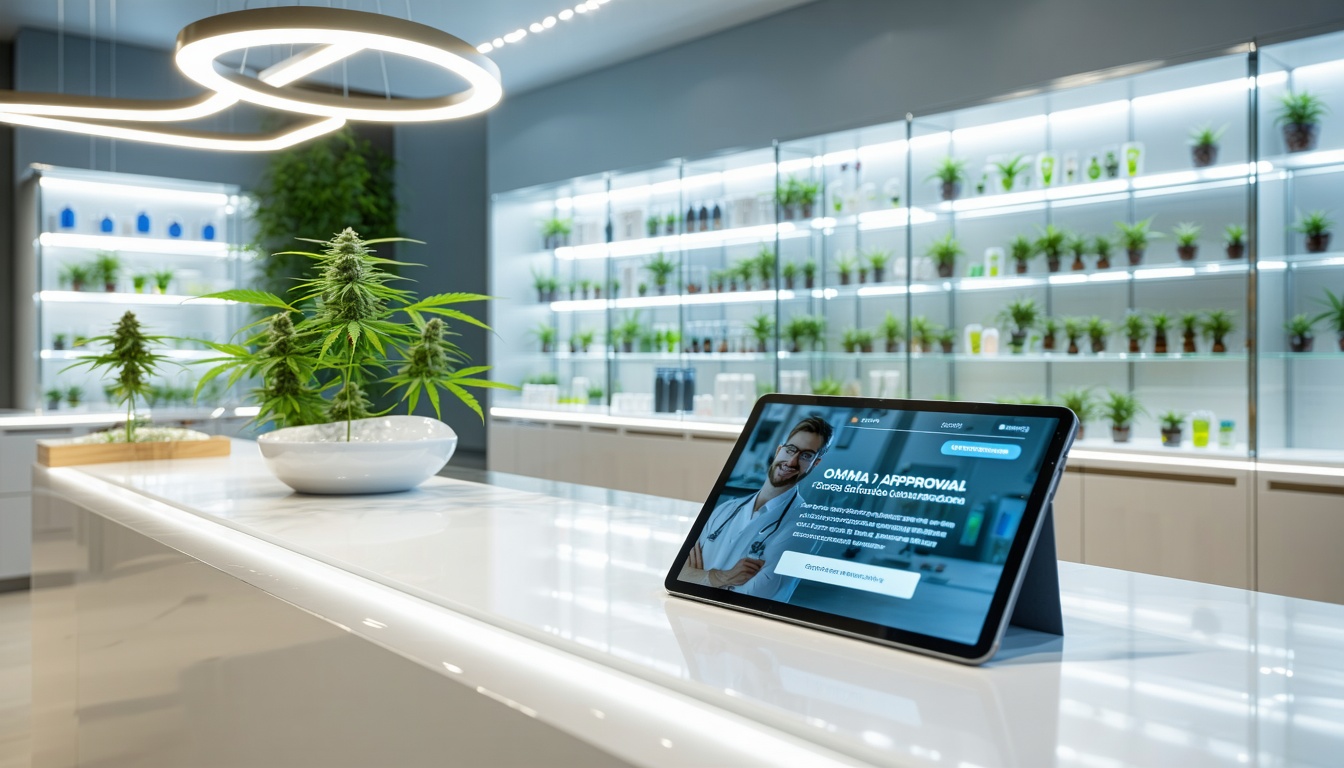The War on Weed: A New Challenge for States with Loosened Marijuana Laws
In 2021, Connecticut became the 19th state to legalize recreational marijuana, with the aim of reducing the resources spent on policing a drug considered largely harmless. The move was expected to lead to a decrease in possession arrests, and indeed, the number of such arrests has plummeted since then. However, the legalization of marijuana has also led to a new problem: the rise of illegal marijuana shops.
These illegal shops are often indistinguishable from licensed retailers, operating in the same neighborhoods and selling the same products. But they have not gone through the required licensing process, leaving law enforcement agencies struggling to crack down on them. The issue has become so severe that some states, including Connecticut, have passed laws giving law enforcement greater powers to police these illegal shops.
The problem is particularly pronounced in Connecticut, where illegal shops have become a major headache for local authorities. “This is an epidemic within the state of Connecticut,” said Sergeant Ryan Evarts of the Norwalk Police Department. The issue highlights the challenges that states face in implementing and enforcing their marijuana laws, and the need for effective strategies to address the rise of illegal shops.
Despite the challenges, many advocates argue that the benefits of marijuana legalization far outweigh the drawbacks. By legalizing marijuana, states can reduce the number of people incarcerated for non-violent drug offenses, free up law enforcement resources, and generate revenue from taxes on the sale of the drug. However, the rise of illegal shops highlights the need for states to develop effective strategies for regulating and enforcing their marijuana laws, and for law enforcement agencies to adapt to the changing landscape of drug use and sales.

